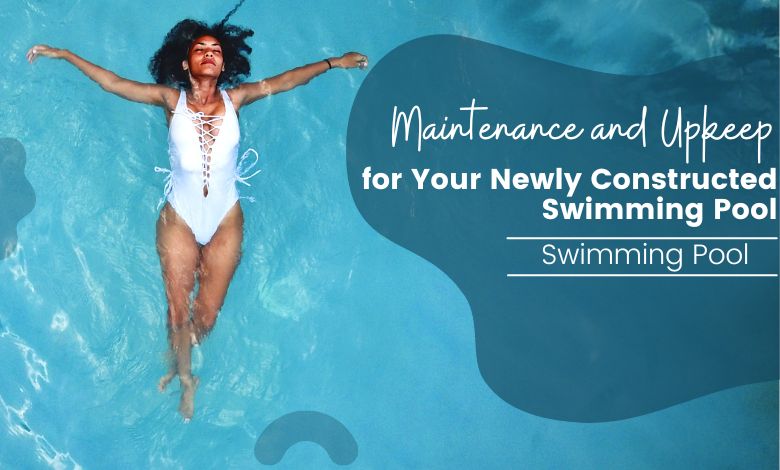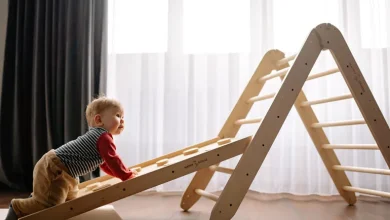Maintenance and Upkeep for Your Newly Constructed Swimming Pool

As a proud pool owner, you understand the importance of regular maintenance and upkeep to ensure your swimming pool remains clean, safe, and enjoyable for years to come. Whether you recently had a pool installation in NJ or you’re planning to get one, it’s vital to have a solid understanding of the necessary steps involved in maintaining and preserving your investment. In this blog post, we will discuss ten crucial points that will help you keep your newly constructed swimming pool in top shape.
A few tips regarding the maintenance and upkeep of your newly constructed pool
Regular Cleaning and Skimming
To keep your pool sparkling clean, it’s necessary to establish a routine for regular cleaning and skimming. Remove leaves, debris, and other foreign objects from the water’s surface using a skimmer net. Additionally, invest in a pool vacuum to clean the pool floor and walls to prevent the buildup of dirt and algae.
In addition to skimming the surface, investing in a pool vacuum is highly recommended. A pool vacuum allows you to thoroughly clean the pool floor and walls, preventing the buildup of dirt and algae. Over time, these contaminants can accumulate and compromise the cleanliness and clarity of your pool water. By using a pool vacuum on a regular basis, you can effectively remove these particles, keeping your pool free from unsightly residue and potential health hazards.
Proper Water Balance
Maintaining proper water balance is vital for both swimmer comfort and the longevity of your pool’s equipment. Test the water regularly using a reliable water testing kit to ensure the pH, alkalinity, and sanitizer levels are within the recommended range. Adjust these levels as necessary to keep the water clean and safe.
One of the key factors to consider is the pH level of the pool water. The pH scale ranges from 0 to 14, with 7 being neutral. Ideally, the pH level of a swimming pool should be between 7.2 and 7.6. Maintaining this range is important as it helps to prevent skin and eye irritation for swimmers. If the pH level is too high, you can add a pH decreaser to bring it down to the desired range. Conversely, if the pH level is too low, you can use a pH increaser to raise it appropriately.
Routine Equipment Checks
Regularly inspecting your pool equipment is crucial to ensure its optimal functioning and prolong its lifespan. By taking the time to inspect the key components, such as the pump, filter, and heater, you can identify and address any issues promptly, preventing them from escalating into more significant problems. Begin by checking the pump for any signs of wear or damage, such as leaks or unusual noises.
A properly functioning pump is essential for circulating the water effectively, so any issues should be addressed promptly. Next, examine the filter to ensure it is clean and free from debris that could impair its performance. A clogged or dirty filter can reduce the water quality and strain the pump, leading to potential problems. Finally, inspect the heater for any signs of malfunction, such as inconsistent temperature or leaks. A malfunctioning heater not only affects the comfort of your pool but also poses safety risks. By conducting these regular inspections, you can proactively identify and rectify any equipment issues, thus ensuring a clean, efficient, and enjoyable pool experience.
Inspect for Leaks
Water loss in your pool can indicate a leak. Inspect the pool and its surrounding areas regularly for any signs of leakage, such as wet spots, cracks in the pool structure, or a dropping water level. Addressing leaks promptly can prevent structural damage and save water.
Efficient Filtration System
The filtration system is the heart of your pool’s maintenance. Ensure that your filtration system is properly sized for your pool and functioning optimally. Clean or backwash the filter regularly to remove debris and maintain its efficiency. A well-maintained filtration system will help keep your pool water clear and healthy.
Timely Chemical Treatments
Chemical treatments are essential for maintaining the water quality of your pool. Regularly test and adjust the chlorine, pH, and other chemical levels as recommended. Shock the pool periodically to eliminate bacteria and algae. Be sure to follow the manufacturer’s instructions for the proper application and dosage of chemicals.
Preventive Maintenance Schedule
Creating a preventive maintenance schedule will help you stay organized and proactive in caring for your pool. Plan regular tasks such as cleaning, water testing, equipment inspection, and filter maintenance. By following a schedule, you can catch potential issues early and ensure your pool is always in top shape.
Protect from Weather Damage
Extreme weather conditions can take a toll on your pool. During storms or winter months, take necessary precautions to protect your pool from damage. Use a pool cover to prevent debris from entering the pool and retain heat during colder seasons. If you live in an area prone to freezing temperatures, properly winterize your pool to prevent freezing and cracking of pipes and equipment.
In areas where freezing temperatures are a concern, proper winterization of your pool becomes essential. Freezing temperatures can cause pipes and equipment to freeze, leading to potentially costly damage. Hiring professional swimming pool contractors in NJ or your local area with expertise in winterization is highly recommended. They can assist you in preparing your pool for winter by draining the water from the pipes, adding antifreeze as needed, and protecting the equipment from freezing and cracking.
Professional Inspection Annually
While regular maintenance is crucial, it’s equally important to schedule an annual professional inspection. A certified pool technician can conduct a thorough assessment, identify potential problems, and provide expert advice on maintenance and repairs. This proactive approach helps catch any issues early on, saving you time and money in the long run.
Conclusion
Maintaining and caring for your newly constructed swimming pool is essential to ensure its longevity, safety, and optimal enjoyment. By following these key maintenance practices, including regular cleaning and skimming, maintaining proper water balance, conducting routine equipment checks, scheduling professional inspections annually, and educating yourself on pool care, you can keep your pool in pristine condition for years to come.
Remember, a well-maintained pool not only provides a refreshing and inviting swimming experience but also adds value to your property. So, make pool maintenance a priority, and enjoy countless hours of relaxation and fun in your beautiful swimming pool.



